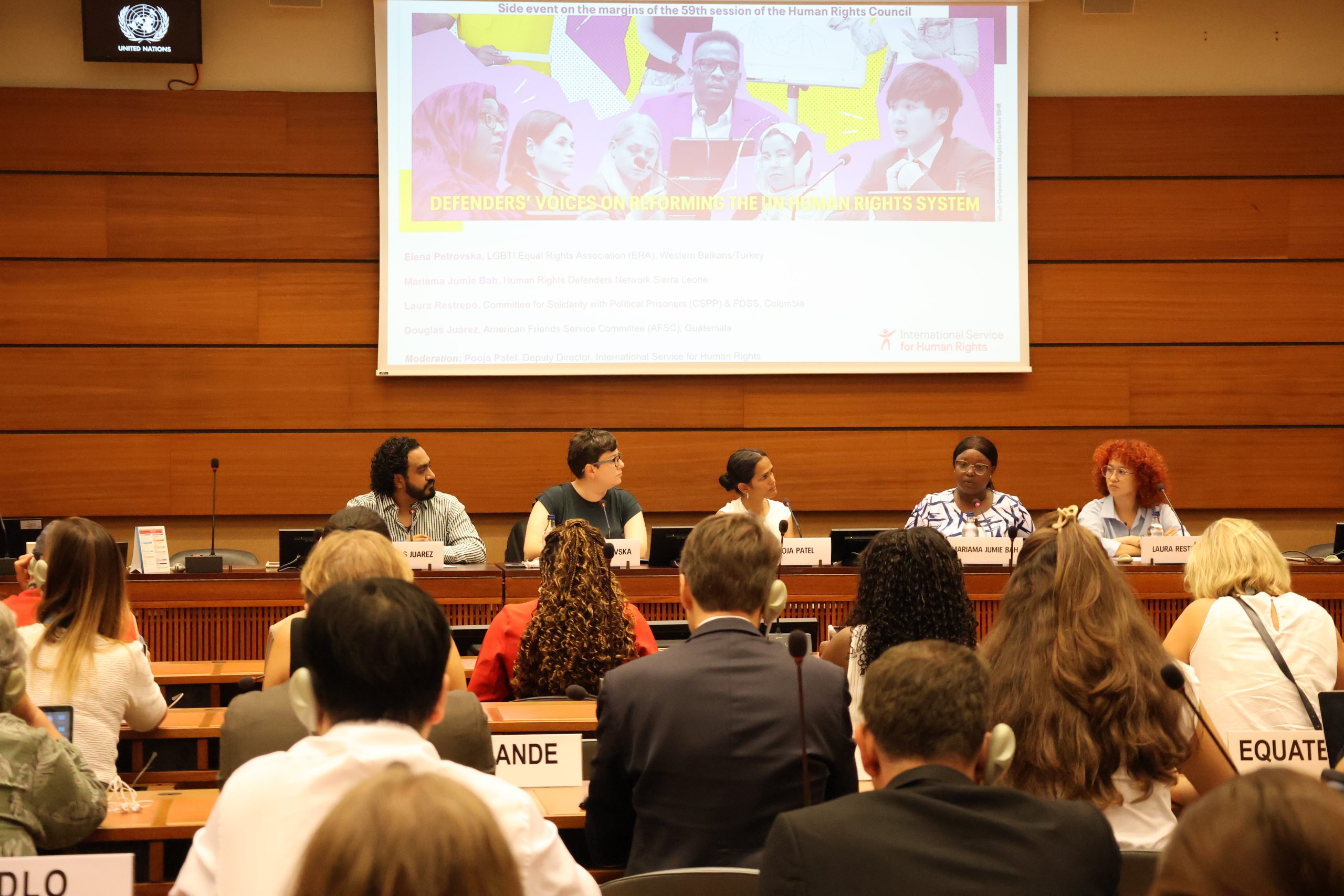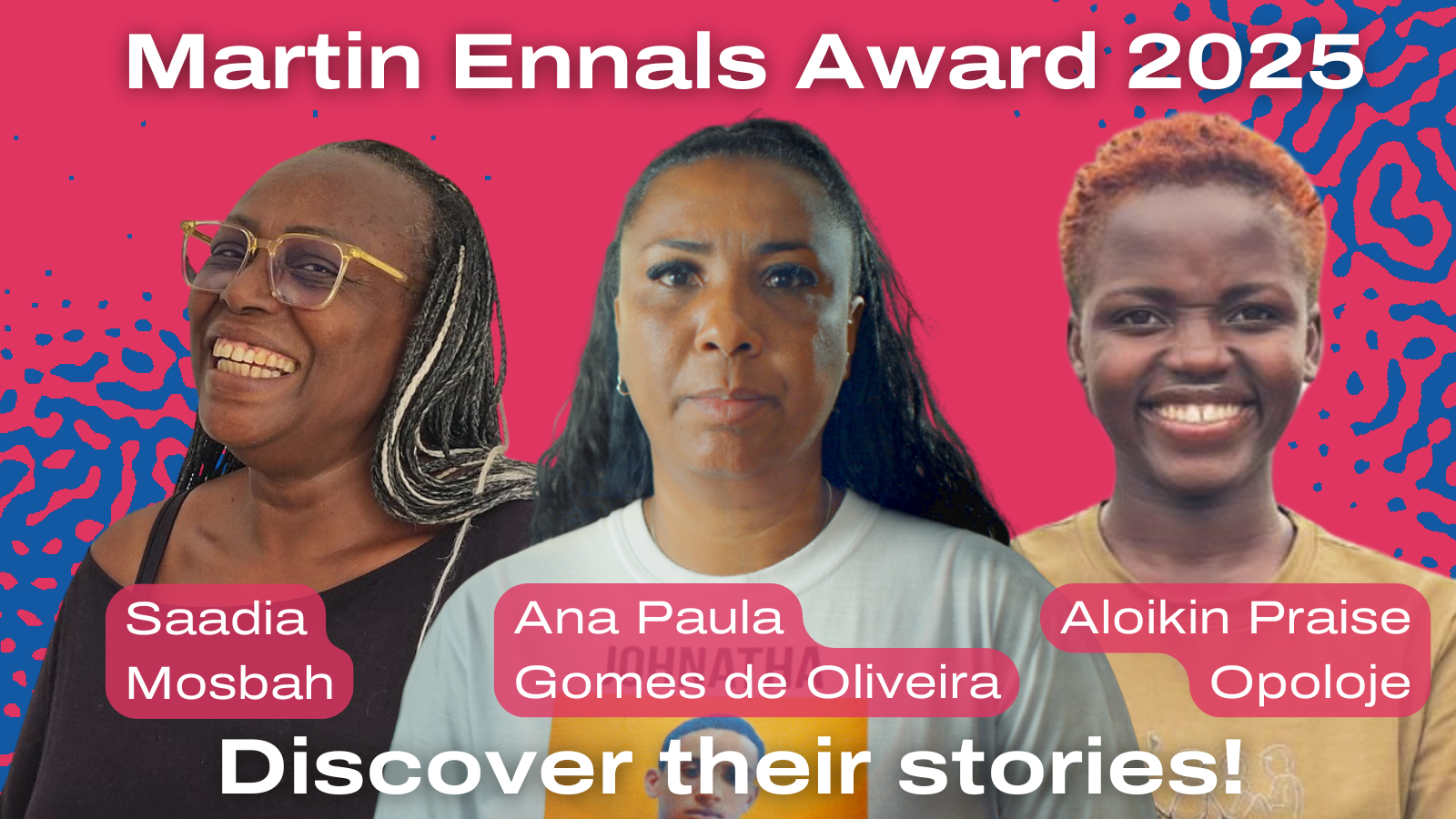In light of the ongoing challenges facing the UN human rights system, on 16 June 2025, ISHR organised an event to create a dedicated space for human rights defenders to present their needs and concerns about how the system impacts their daily work.
‘Across our region, our lives are being politicised, erased, and endangered. We are not treated as citizens with rights—we are treated as problems to be solved [... ] States are failing to protect us. They are producing victims through their inaction, their silence, and, worse, through their active dehumanisation of LGBTI people’.
Elena Petrovska , LGBTI Equal Rights Association (ERA) for Western Balkans/Turkey
Participants shared concrete perspectives on how the UN, in the frame of the UN80 initiative, could strengthen its mechanisms to make a real difference on the ground. More than 30 State representatives from around the world attended the discussion and engaged directly with the defenders’ recommendations.
The UN80 initiative, launched by the UN Secretary-General António Guterres in March 2025, is an opportunity to reinforce the UN system and ensure it better serves those who are most marginalised and at risk. It aims to make the UN more effective, more agile and better adapted to the challenges of the 21st century. While opportunities for meaningful participation remain limited, there is hope that the UN80 deliberations will lead to reforms that reflect the expectations and demands of human rights defenders, victims, and survivors.
To contribute to this process, ISHR is conducting a survey to identify key challenges faced by national and regional human rights actors. The partial results underline a clear message: the UN’s human rights work must focus strongly on implementation and enforceability. Important obstacles highlighted include the lack of effective enforcement mechanisms, weak implementation of obligations, political divisions that prevent accountability, and the absence of consequences for atrocity crimes.
‘Back home, when I told the women human rights defenders in my network that I am coming here to Geneva, they all told me “don’t bother, you can’t do anything there.” They say this is an institution created by the wealthy and powerful States to serve only themselves. Will this be the legacy of the UN at 80, or can we address this perception meaningfully?’
Mariama Jumie Bah , Human Rights Defenders Network Sierra Leone
Defenders stressed that the UN human rights system should become more responsive to realities on the ground, ensuring safe, meaningful access and participation for civil society and human rights defenders, putting affected people and communities at the centre of decisions, and undertaking reforms. Despite the challenges, confidence in the UN’s role remains strong: 80% of ISHR’s survey respondents agree that the UN still has an important role to play.
‘If the UN is to live up to its principles, it must take a more honest and active stance toward this systemic injustice. [...]The UN must look inward and acknowledge its own colonial legacies — in who speaks, who decides, and whose knowledge counts. It must shift power toward grassroots and frontline communities, especially those that have been historically silenced.’
Laura Restrepo, Committee for Solidarity with Political Prisoners (CSPP) & FDSS, Colombia
‘Human rights defenders are not only on the front lines of crises — they are on the front lines of solutions and they have visions for this reform’, said Pooja Patel, Deputy Executive Director at ISHR. ‘Any discussion around the reform of the UN must prioritise human rights defenders’ needs and the needs of the communities they defend. […] Their voices must help define what a renewed, accountable, and effective system looks like. The moment is challenging, but it is also full of possibility.’
From our work with the communities, we feel a lost of hope regarding the human rights agenda… A cultural shift is needed from the UN and this needs to reach the “unconvinced” and strengthen the social movements advancing human and environmental rights from the bottom-up.
Douglas Juárez, American Friends Service Committee
With their stand, human rights defenders and ISHR were able to convey the hopes of many communities around the world. The responsibility now falls in the hands of State representatives and the UN to act with consideration and intention to create an environment in which human rights will be equally and effectively applied for a real impact on people’s lives.




